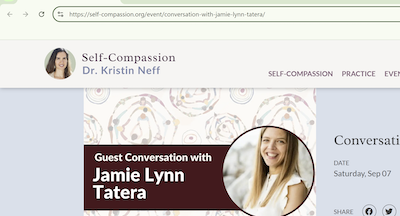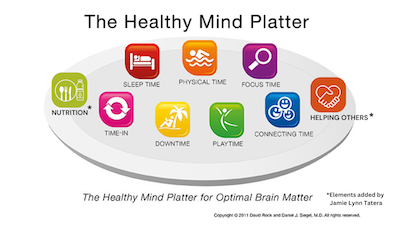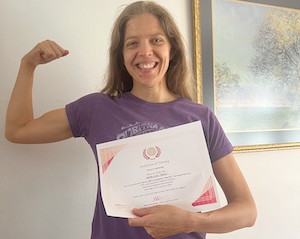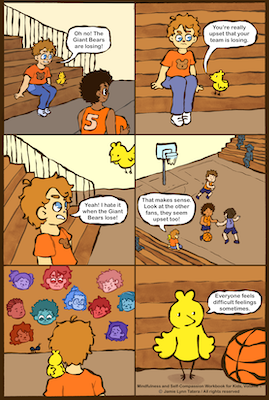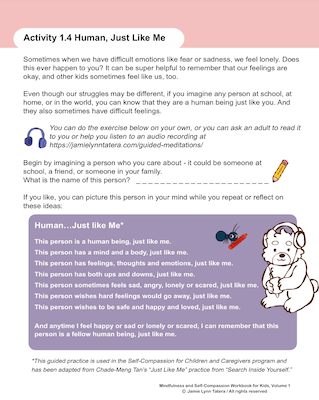A Map to Well-Being
16 skills to get (your kids) there!
Hello Friends!
Today I’m sharing a map of sixteen skills that can help you and your kids be your most resilient, authentic and loving selves! One of my favorite aspects of the Mindfulness and Self-Compassion Workbooks for Kids is the quest element. The Quest for Self-Compassion map provides a playful way for kids to move through 16 lands that contain 64 engaging mindfulness and self-compassion-boosting activities.
The book is being prepared for publication as I write this, and we plan to have the first volume available for preorder later this month (late September 2024). I am so, so, excited to share this book with you and the children you care about!
Here’s a map of the 16 Lands:
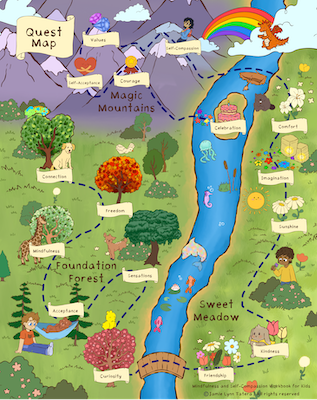
The first volume contains activities and comics from the first 8 Lands: Connection, Freedom, Mindfulness, Acceptance, Sensations, Curiosity, Friendship and Kindness. I’ve shared with you excerpts from the Land of Connection and Freedom in previous blogs. In an upcoming newsletter, I plan to share an excerpt from the Land of Friendship.
All of the adventures in volume one create a foundation for practicing mindfulness and self-compassion. Children learn to:
- Playfully practice mindfulness through noticing sights, sounds, and body sensations (critical skills for self-regulation).
- Explore activities and comics to discover how we resist emotions, and how curiosity and acceptance can help us turn toward difficult emotions skillfully.
- Hear real kids share their experiences throughout the book, helping kids understand that they are are not alone in their struggles.
- Feel free to feel the full range of our emotions (including positive feelings!).
- Treat ourselves like a good friend when things go wrong.
- Wish kindness for ourselves and others.
So much goodness is packed into the first eight adventures of this quest. These are resilience resources that I wish for my own children, and for the world. These lessons are also part of my Parent-Child Mindfulness and Self-Compassion classes. If you have children ages 7-11, there’s still time to register for my next parent-child self-compassion class, which starts soon. Upcoming events also include a conversation with Kristin Neff as well as self-compassion courses and teacher training for adults.
Remember, your personal mindfulness and self-compassion practice matters. Not just for your well-being, but also because it ripples out to the world. I love this one-minute clip about how Grant’s self-compassion levels were profoundly influenced by his mom’s.
Wishing you acceptance and freedom on the path to well-being.
With love,
Jamie Lynn
P.S. Anjali and I made a video of the second comic from the Mindfulness and Self-Compassion Workbook for Kids, and we discussed why suppressing difficult emotions doesn’t work out well in the below clip:

